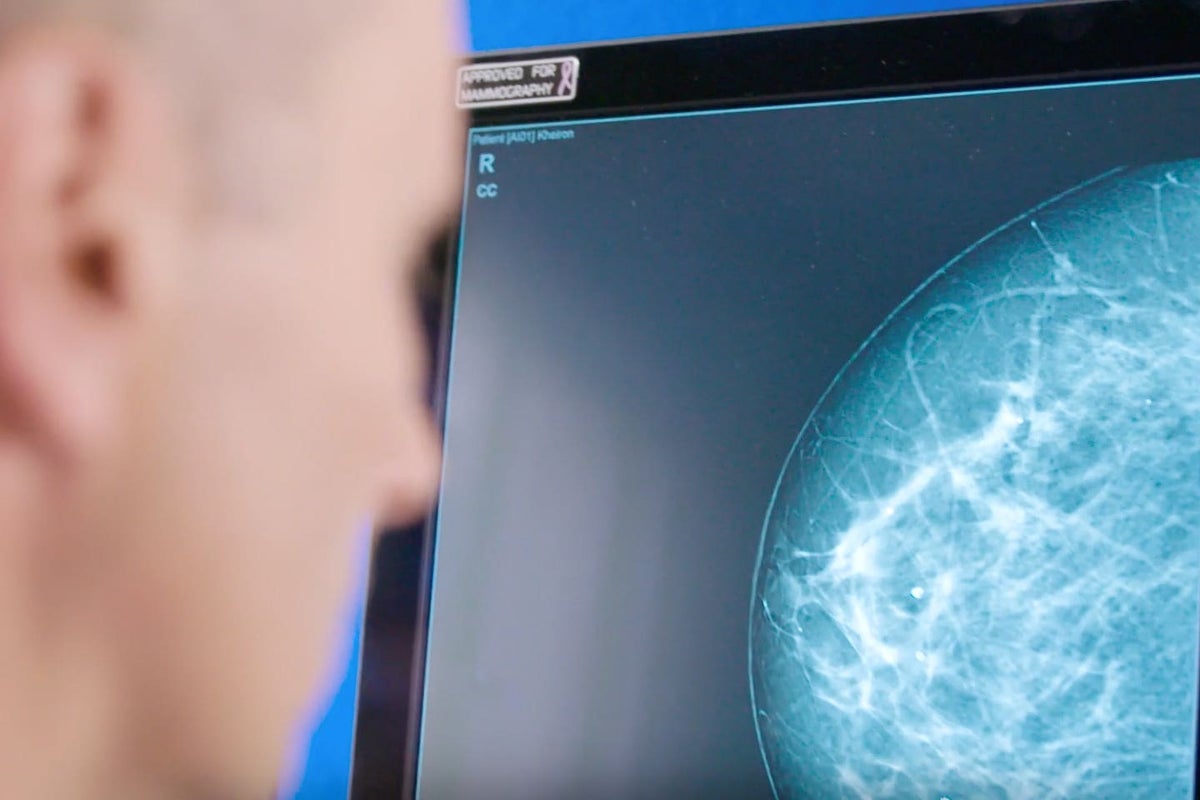
Women who put on weight and have a baby later in life may be significantly more likely to develop breast cancer, UK research suggests.
Experts discovered that a big weight gain after the age of 20, plus having a first child after 30 or not having children at all, meant women were almost three times more likely to develop breast cancer than those who gave birth earlier and whose weight remained stable.
The research, which has not yet been published in a peer-reviewed journal, was presented at the European Congress on Obesity in Malaga.
Lead researcher Lee Malcomson, from the University of Manchester, said more women in the UK are now overweight or obese than around a decade ago, while giving birth later in life has been steadily increasing over the past 50 years.
At the same time, diagnoses of breast cancer in women are at their highest ever rate, he said.
He added: “More information about how age of motherhood and weight gain affects the risk of breast cancer would allow us to better work out who is most at risk of the disease and target lifestyle advice accordingly.”
For the study, Mr Malcomson and colleagues analysed data on 48,417 women typically aged 57 whose body mass index was in the overweight range, around 26.3.
The women were split into whether they had their first pregnancy early (before the age of 30), late (30 and over), had not given birth, and also looked at weight gain in adulthood.
Weight gain was calculated by asking women to recall their weight at the age of 20 and subtracting it from their current weight.
The women were followed up for an average of 6.4 years, during which 1,702 were diagnosed with breast cancer.
The study results suggested that women with an early first pregnancy had greater weight gain during adulthood than those with a late first pregnancy, with 0.21kg of extra weight gain for each year earlier the pregnancy occurred.
An early first pregnancy also seemed to protect against post-menopausal breast cancer, which confirms previous research, while weight gain pushed up the risks, which has also been found before.
However, the study found no evidence that having a first pregnancy at an early age managed to offset the increased risk of breast cancer caused by weight gain.
Overall, women who had over a 30% increase in weight during adulthood and either had their first child after age 30, or did not have children, were nearly three times more likely (2.73 times) to develop breast cancer compared with women who had an early first pregnancy and less than a 5% increase in adult weight.
Mr Malcomson said: “Our study is the first to establish how weight gain and age of first birth interact to affect a woman’s risk of breast cancer.
“It is vital that GPs are aware that the combination of gaining a significant amount of weight and having a late first birth – or, indeed, not having children – greatly increases a woman’s risk of the disease.”
Dr Kotryna Temcinaite, head of research communications and engagement at Breast Cancer Now, said: “It’s important to remember that breast cancer risk is influenced by many different factors including genetics, lifestyle and environment, and many of these are out of our control.
“These findings add to our understanding of how pregnancy and weight gain throughout adulthood can influence someone’s chances of developing breast cancer after menopause, but we still need more research to fully understand the reasons behind it.”
She said it was known that having a healthy diet, exercise and maintaining a healthy weight can help reduce the risk of breast cancer.
Varroooom! It's back on the bikes for Ewan and Charley for Europe trek in 'Long Way Home.'
Swinney accused of ‘treading water’ over Government plans for the next year
SNP’s ‘flimsy’ programme for government offers ‘more of the same’, says Findlay
Israeli plan to seize Gaza alarms many: 'What's left for you to bomb?'
Weight loss jabs could help cut alcohol consumption, study suggests
Police investigate alleged attack on prison officer by Southport killer







